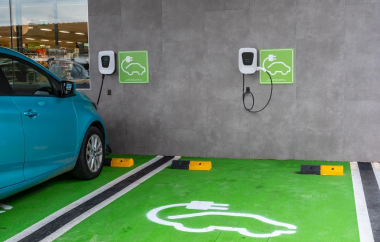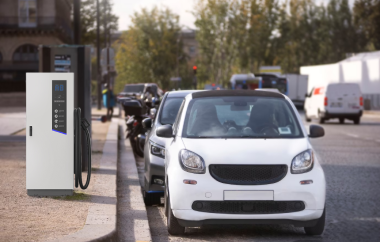Future electric vehicle charging technology is the 350kW Charger
- Electric cars and plug-in hybrid electric vehicles need an EV charger, just like any other charging device or technology, to keep the battery pack charged. The public now has far greater access to electric motors, which don’t produce harmful emissions and don’t need petrol. Owners of these automobiles, however, have a distinct problem. What techniques do they employ to keep their cars charged? They must need an EV (electric vehicle) Charger to charge completely electric vehicles.
- Designed to fast recharge the battery of electric vehicles, the 350kW Charger is a high-power EV charger. Compared to chargers with lower capacity, this kind may provide an electric vehicle (EV) with up to 350 kilowatts of electricity, which can greatly speed up battery recharging. Depending on the vehicle’s battery capacity, a 350kW ev charger may fully recharge an EV battery to 80% capacity in as little as 15 to 30 minutes. This is a major improvement over slower, less powerful chargers, which may need several hours to charge an EV completely.
- The development of EV charging infrastructure has advanced significantly with the introduction of the 350kW ev charger, which enables drivers to easily and swiftly recharge their cars while on lengthy drives or during peak travel times. It’s important to keep in mind that not all electric vehicles can handle such high-power charging, and there are currently relatively few 350kW chargers available compared to lower-power charging choices.
EV drivers:
Use Zap-Public Map’s Charging Analyzer to calculate how long it will take to charge an EV at an EV Driver charging station. This enables you to select any new or old plug-in electric vehicle and customize elements like the price of power and the amount of charge required for unique results. Any city car that can be charged from an additional energy source, such as plug sockets, as well as the energy stored within rechargeable packs drives or assists in driving the wheels of plug-in hybrid vehicles is referred to as a plug-in electric vehicle (PEV), also known as a new energy vehicle (NEV), in China.

The time required for charging:
- The length of time it will take to recharge your car is another factor to take into account. How long does it take to charge an electric car? You might be thinking. Unfortunately, there isn’t a straightforward answer to the problem because several different factors are involved.
- However, only a few cars are equipped to take full advantage of this. However, if you’re travelling across the nation, you don’t want to connect to any standard AC charging stations because this might make the trip take much longer.
- Several EV charging models are on the market right now, and they can all charge your car at varying rates. Furthermore, different cars have vastly different charging rates for EVs. Around 350kW DC of DC, fast charging capacity is now offered at charging stations in the UK.
Where should You be charged?
- First, if you have a driveway, charging an electric car at home is simple. However, because the government still provides significant financing, we advise hiring an OZEV-approved installer to install a specialized wall box, even if you can achieve this with a standard UK three-pin plug.
- Make sure there are enough charging stations along the way if you’re planning a lengthy vacation. Always have a few backup plans in place if the Charger you plan to use is “out of order or in use.” Additionally, ensure the Charger and your vehicle are connected through the same cable. (Or that you have the right adapter). Utilize our handy electric car charging map to find the optimal route.
- Owning a Tesla vehicle makes route planning simple; the GPS route planner in your car will take care of everything. It will even alter your course if the Charger is in use. That’s just one more reason to look at our Tesla lease deals.
- You may arrange when to charge your automobile at home and charge it more quickly with a conventional wall outlet, saving energy costs. If you have a driveway, charging an electric car at home is easier. Other options include utilizing a public charger close by or charging at work.
What Should You Know About 350kW Charger?
A high-power electric vehicle (EV) charger of the 350kW variety can quickly charge compatible EVs. You should be aware of the following information regarding 350kW chargers:
- Charging Time:
A 350kW charger can charge a suitable electric car up to 80% in 20 to 30 minutes. This is significantly quicker than other charger kinds, such as 50kW or 150kW chargers.
- Compatibility:
The 350kW chargers are incompatible with all-electric vehicles. The vehicle’s battery system must handle the high charging rate to benefit from the quick charging speeds. There currently need to be more EV models available on the market that can make use of a 350kW charger.
- Accessibility:
Despite the increasing frequency, 350kW charger is still uncommon compared to other chargers. They are frequently seen in busy places like rest stops along major highways or huge shopping malls.
Conclusion:
For someone unfamiliar with electric vehicles, charging may be challenging to understand. However, there is little to do after you’ve worked out how to charge an electric car. A built-in satellite navigation system that automatically plans your trips around charging stations and ultra-quick charging. The company has a history of producing AC and DC chargers for new energy vehicles in foreign markets, and it can dock with the OCPP protocol and deploy platforms abroad. The PIWIN technology in the EV charger market is distinct. It has a wealth of experience working with Fortune Global 500 firms, foreign-listed corporations, and producers of new energy vehicles.

